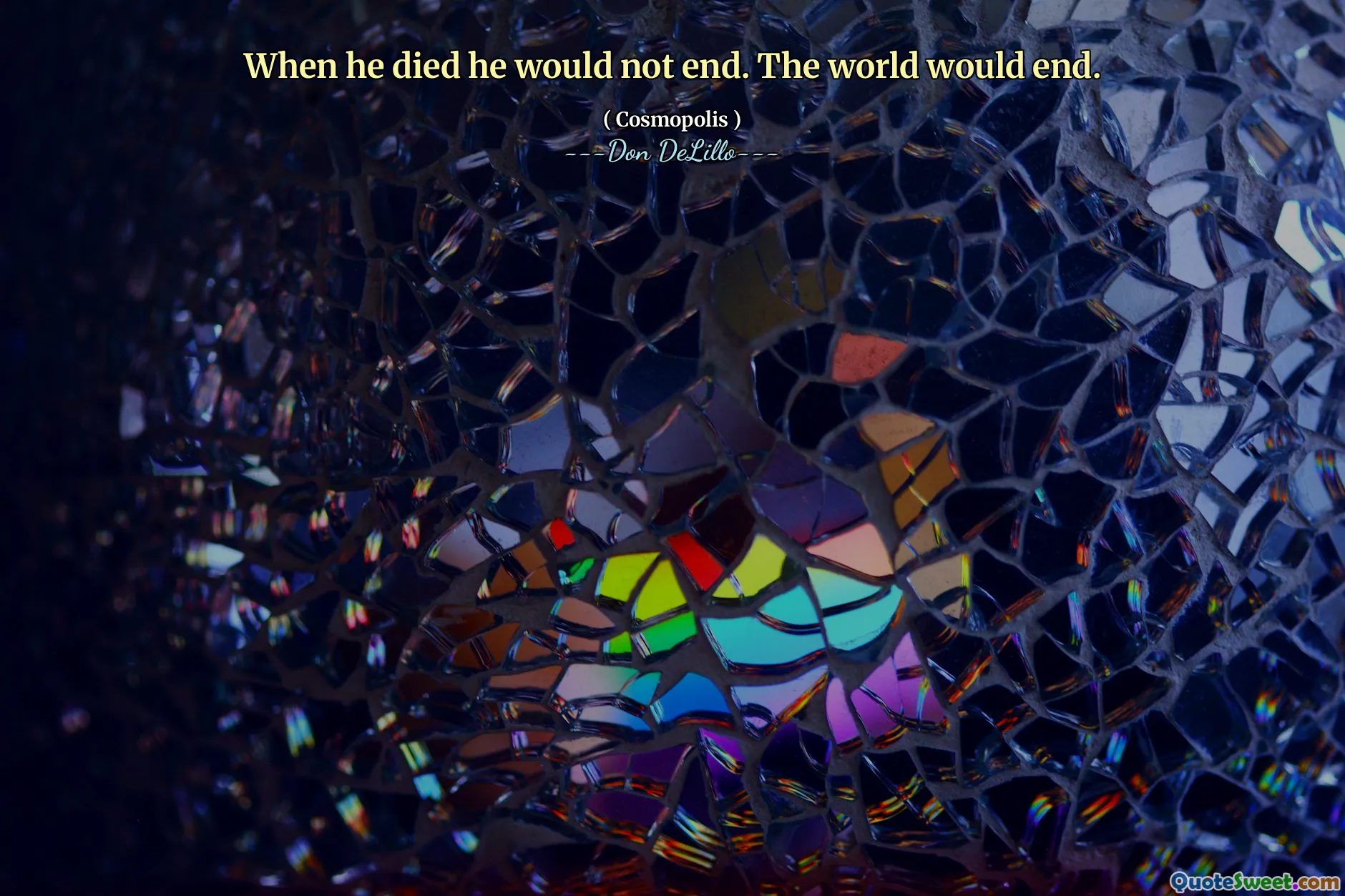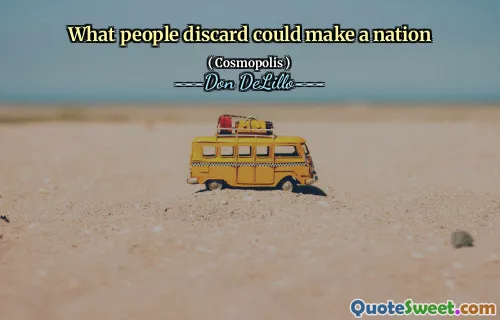
When he died he would not end. The world would end.
This quote from Don DeLillo's 'Cosmopolis' encapsulates a profound meditation on the persistence of influence and the immeasurable scope of existence beyond individual mortality. It suggests that an individual's impact can transcend their physical death, resonating through the fabric of the world itself. The notion that "the world would end" if he died is metaphorical, implying that some individuals are so integral to the fabric of society or the universe that their absence might herald significant or cataclysmic change. This idea invites reflection on the interconnectedness of human lives and the ripple effects one's actions or existence can have on a larger scale.
In a broader sense, it also touches on the concept of immortality, not through physical preservation but via lasting influence—ideas, relationships, or cultural shifts that endure beyond the individual's lifetime. The quote challenges us to consider what constitutes true significance and how the seemingly personal acts or lives contribute to the collective evolution of human history. It provokes a contemplation of mortality versus legacy, prompting questions about what it means to truly 'end' in a universe where our efforts echo long after we are gone. The notion that the end of a person could trigger a fundamental change in the world reflects the fragile yet profound harmony within the complex fabric of existence. It leaves the reader pondering the extent to which individual lives shape larger realities and whether it is possible, or necessary, for some to leave a mark so indelible that their absence alters the very course of history.







